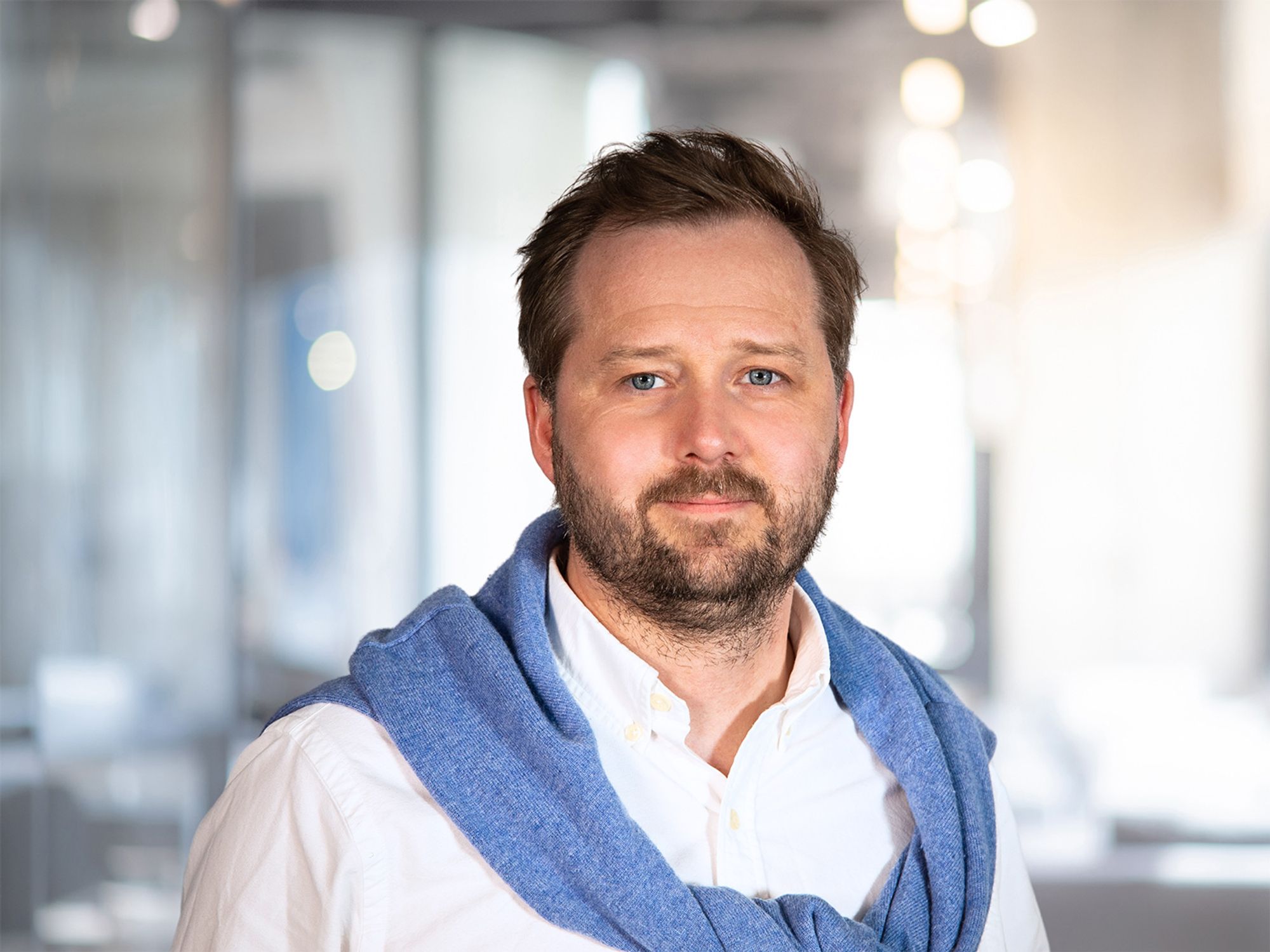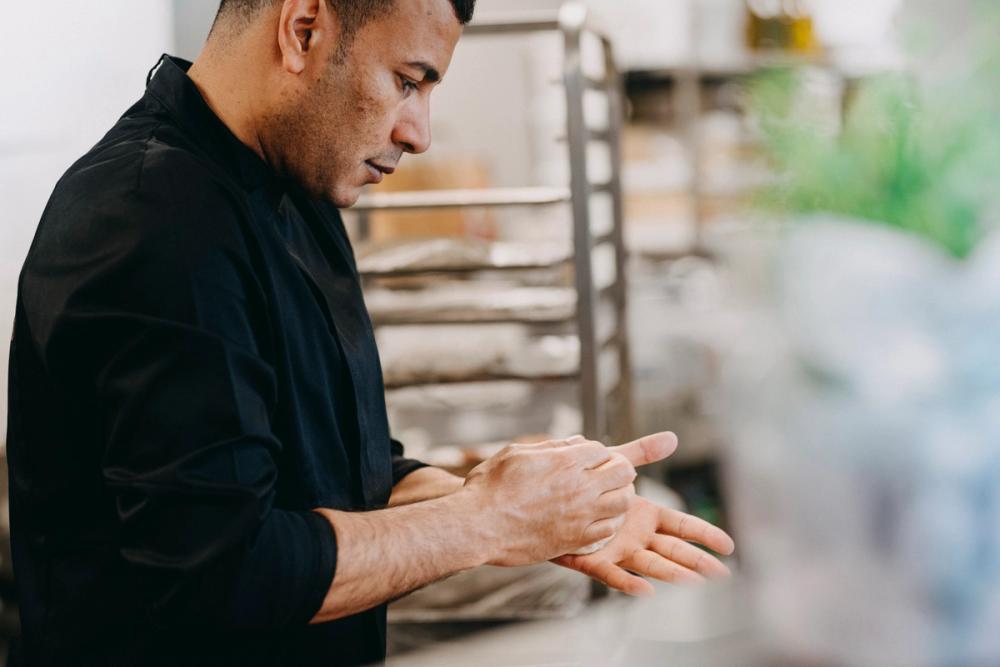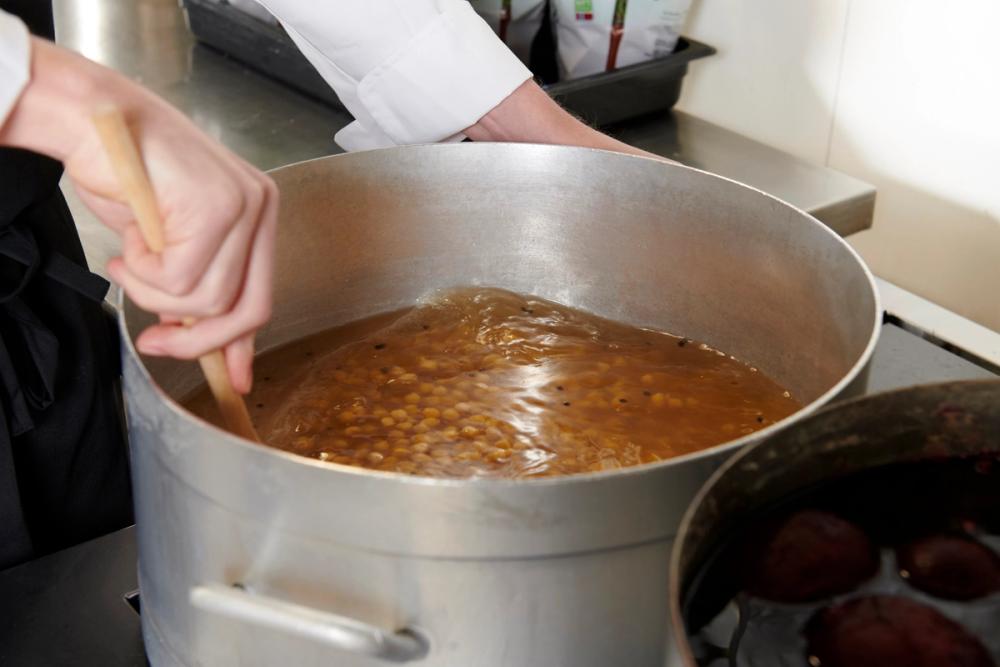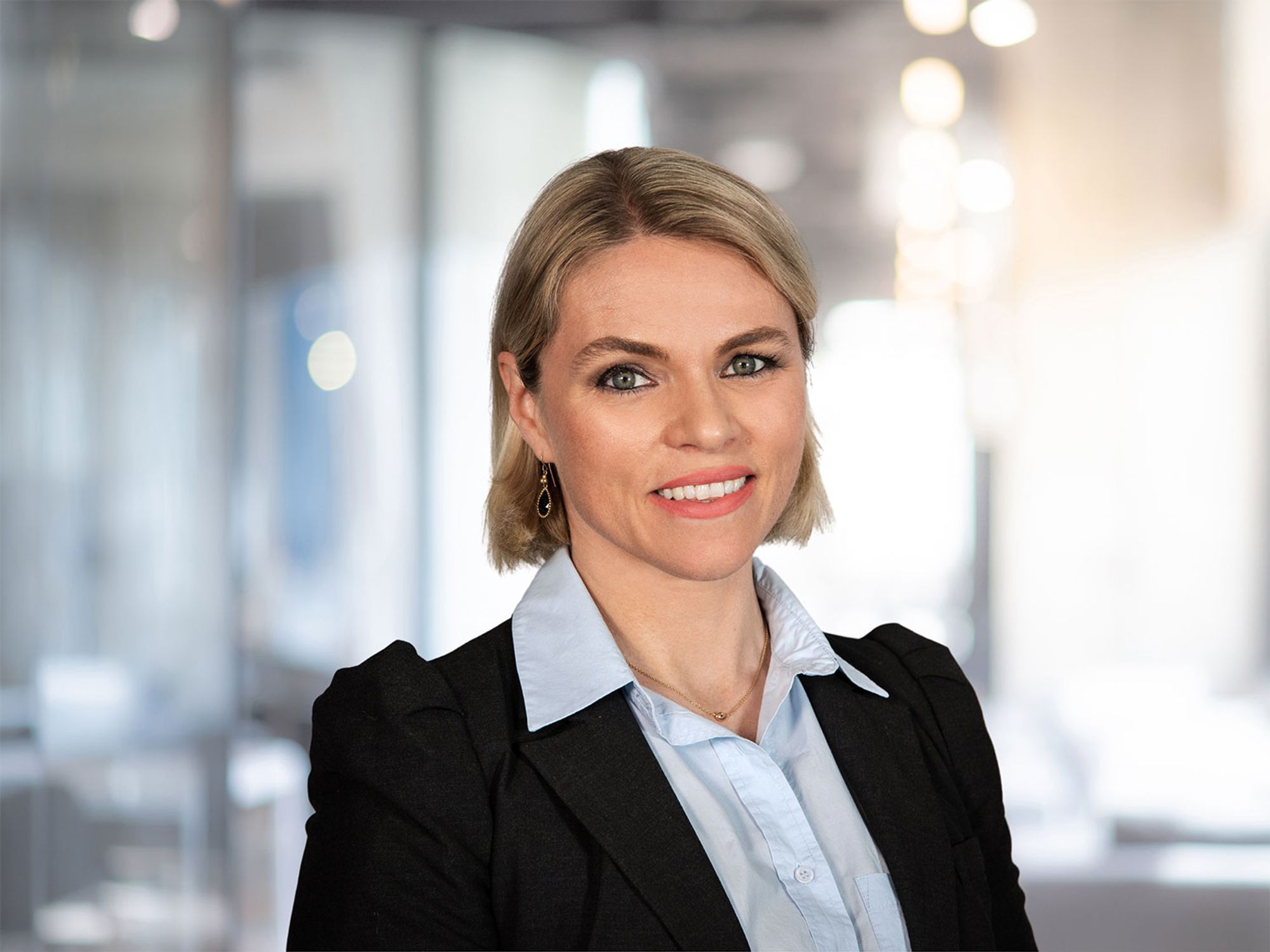
Always available
Food & Facilities is one of 4Service's three divisions. On a daily basis they cook and serve food, run restaurants, receptions and coworking locations, in addition to offering most conceivable services of all sizes. In March they were given a different task. The Norwegian Directorate of Immigration (UDI) had an urgent assignment that could not wait.

Saturday 5 March
– We don’t usually call our partners on a Saturday night, but this time I couldn’t see any other way out.
These are the words of Toyne Vikerheim, Head of Section at the UDI. She had just been on the phone with what used to be called the Regional and Reception Department of the Directorate. Their responsibilities include running the National Arrival Centre for Refugees in Råde.
– We were informed that there were several buses on the way with refugees from the war in Ukraine. More than the arrival centre could handle on its own. Some of the refugees had been redirected to Oslo and were due to arrive shortly.
Vikerheim’s daily job involves running of all of the UDI’s premises. Obviously the job that had now just landed in her lap was therefore a bit different to her usual duties.
– I was given the responsibility of providing food for the refugees who were on their way. We didn't know when they would arrive or how many there were. I called the guy that I thought might be able to help, even though it was a weekend and late at night.

At that time Sindre Rugelsjøen Lie was responsible for running the canteen at the UDI.
– We had collaborated a lot before and I knew that Sindre was always solution-oriented. I quickly informed him about the situation and he said “yes” almost before I had finished, Vikerheim explains.
Lie also remembers the evening of 5 March.
– When a customer calls late at night and during the weekend, you realise that something is urgent, says Lie, and continues:
– After Toyne had explained the situation, I ordered a taxi, called a few colleagues, and at half past eleven in the evening we met in one of our canteen kitchens. The mission was clear: the refugees needed food. We set to work and within a couple of hours we had produced two hundred breakfast bags.

Scandic Helsfyr
While Vikerheim and the UDI were contacting 4Service, hectic plans were set in motion for the reception of the Ukrainian refugees. Various health and emergency response teams from the City of Oslo, the police, the Civil Defence, the Red Cross and Hero gathered at the Scandic Helsfyr hotel which was used as an emergency hotel during the pandemic. Due to the chaotic situation, no-one knew exactly how many refugees would soon be arriving in the lobby.
– The first refugees arrived at four o'clock in the morning and there were fewer of them than we had initially thought, says Vikerheim.
Around one hundred people, mainly women and children, arrived during the night. They had brought nothing more than the clothes they were wearing and mobile phones which showed the horrors of the war.
– Meeting people like that was emotional. They had all left their homes and many of them had left husbands and fathers behind to defend their country. Even though we are well trained, it is difficult to prepare for such an extraordinary situation, says Vikerheim.
After a couple of hours of sleep, Lie returned to the Scandic.
– There is one thing that I remember in particular about those first few hours at the hotel. A large table had been set up in the reception area with lots of toothbrushes, water, toiletries, toys and other items that people take for granted. It was very moving to see people who had fled from everything, and who were now gathering together the essentials for a new life in a new country, says Lie.
Like the rest of the emergency response team, Lie focused on specific tasks and started distributing the breakfast bags. But what happened next was equally important.
– During breakfast we met all sorts of people ranging from infants to the elderly. It quickly became clear that if we were going to be able to serve such a diverse group of people four meals a day, we would have to plan well, he explains.

Lie sat down with a couple of chefs from 4Service and started planning the next week's meals. While they were working, increasing numbers of refugees arrived at the Scandic Helsfyr and Vikerheim was calling regularly with updated information and new requirements.
– Sindre and his team delivered almost everything we asked for. If we wanted more porridge, they delivered it. If we needed more fruit, juice or soup, it didn't take long for them to adjust the meals. I don't know how many hours they slept during the first week, but it can't have been many, says Vikerheim.
After one week, there were just under 1,000 refugees being accommodated in 400 rooms at the Scandic. A certain sort of normal situation was established during what, for all those involved, can only be described as being the opposite.
Teamwork
In order to solve the constantly growing task, 4Service and Lie employed three different teams, working at three different locations.
– It's impossible to name everyone who contributed. Even though I was standing in the middle, I received invaluable support and help from other operations managers, canteen managers and their teams at the Helsfyr Tax Administration, the UDI and Gastro Catering. They all deserve a big thank you for all the effort they made during a very hectic time, Lie emphasises.
Between 6 March and 7 April, 4Service served 77,900 meals, 3,020 litres of juice and 1,700 litres of milk and a lot more besides. At the beginning of April, the UDI withdrew from the practical work being undertaken at the makeshift emergency reception centre and other agencies took over. Scandic and 4Service stayed behind and ensured that the refugees who were still staying there had a daily life that included both food and shelter.
– Even though it was all hands on deck during that first month, luckily things went well.
Today, Lie is the Regional Manager for Staff Canteens in Oslo and Eastern Norway, but he has thought a lot about why things were so successful in March 2022.
– It's in our culture. We are a company full of people who say yes. When we had the opportunity to help and we did exactly that, he says proudly.
Vikerheim is also impressed by the work that was carried out. Although this emergency job was concluded a long time ago, she has daily contact with 4Service.
– Choosing 4Service as a staff restaurant provider in 2020 was a crossroads. Both their services and the food provided are top quality. In addition to the coffee bar, there are two hot dishes every single day and dessert on Fridays. I don't understand why anyone would want to work at home when they could have catering at work, she smiles.

2022

Trine Holmen-Løkken is the Director of the Food & Facilities Division. She is also proud of what Lie and her other colleagues achieved when it mattered most.
– We make a living from solving challenges. In many ways this was the ultimate test. As Sindre says, we are a team of yes-people. When I received the phone call, all I had to do was roll up my sleeves. I am pleased that the UDI is so pleased with our delivery, but the most important thing was that those who fled their country had a little less to worry about, she says.
This was not only the assignment undertaken for the UDI that made 2022 an exciting and eventful year for Holmen-Løkken and the rest of the Food and Facilities team. With the last remnants of the pandemic, an uneasy world situation, inflation and changing habits among Norwegian workers, they had plenty on their plate.
– When autumn arrived we understood that the world had probably changed forever. This applied in particular to the use of home offices and digital meetings. Like property owners, we have had to be innovative and develop smart hybrid solutions that people actually want.
Fortunately 4Service is used to challenging established ways and finding opportunities where others give up.
– We're used to change and we have a lot of practice in turning things around. Our daily services are one of the measures that property owners are now using in order to entice people back to their workplaces. It is also fun and motivating to see what steps we have taken in the catering field during the past few years. The key is having a wide range of services that can be adapted to suit different requirements. No-one knows what is waiting for us round the next corner, but we are looking forward to whatever comes next, she concludes.

